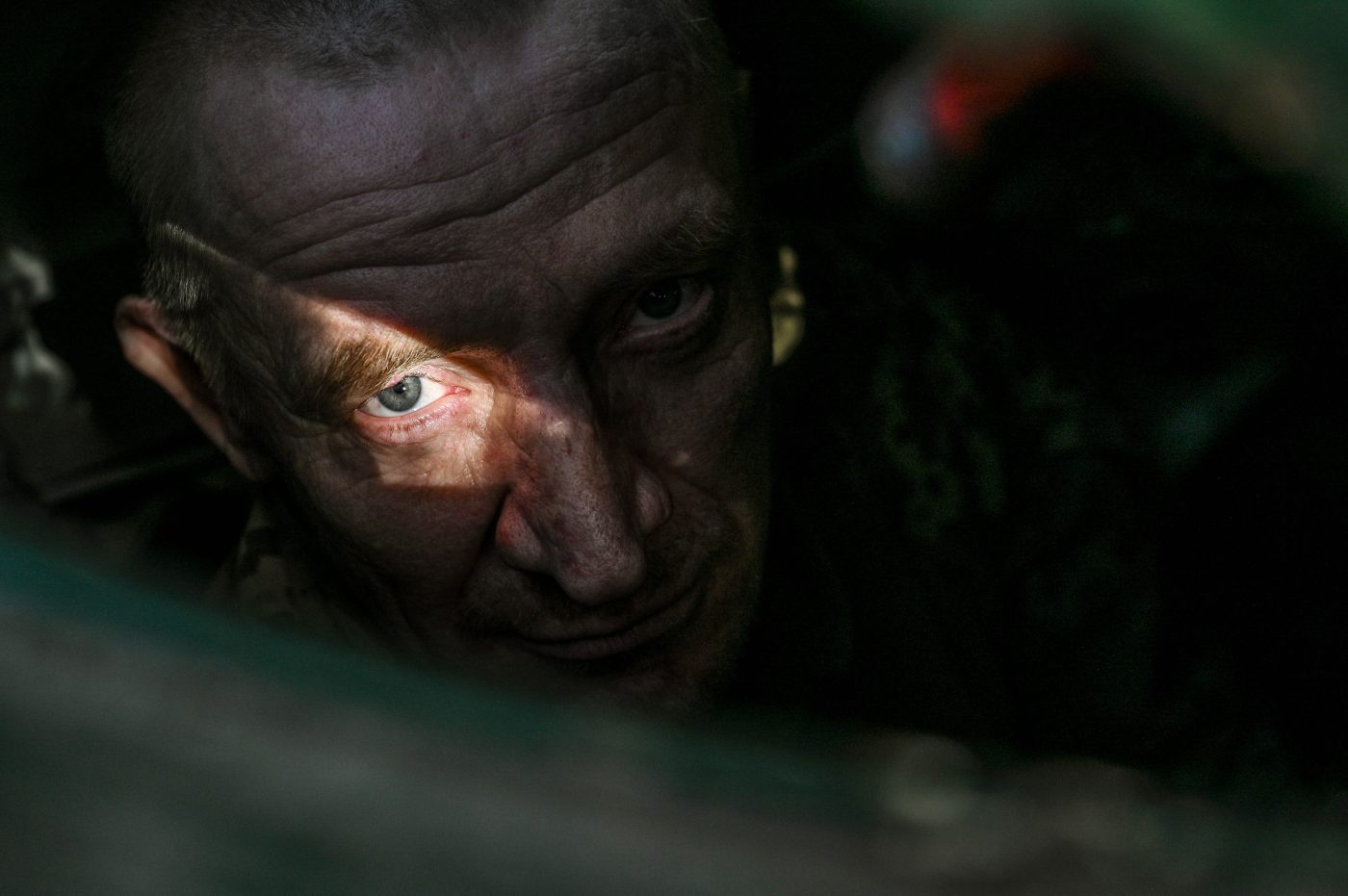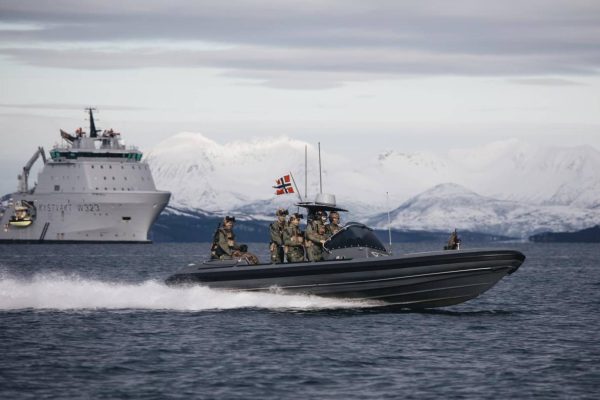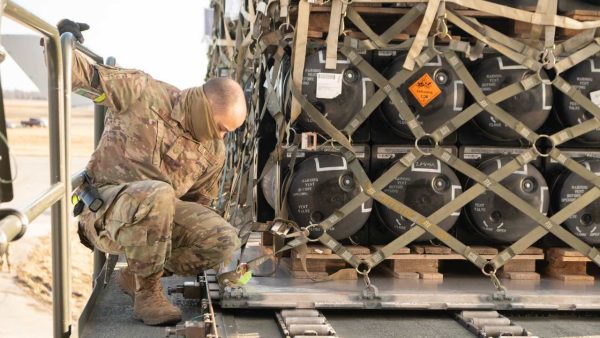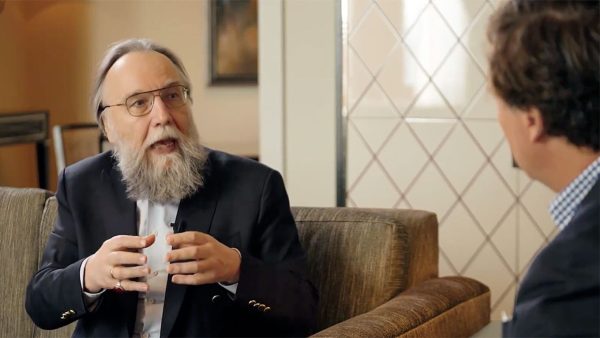Ukraine’s cup runneth over.
The US is sending $61bn in military aid, the result of a rare coming together by Congressional Democrats and Republicans.
That was on April 23. With USAF heavy lift aircraft and logistics units already fired up, the aid began to flow immediately. Some is due to reach Ukraine’s near-empty frontline ammunition bunkers by April 25. A day earlier, it emerged that the administration had already sent ATACMS ballistic missiles with a range of around 300km (180-plus miles) that Kyiv has been seeking for more than a year. They have already been used, reportedly to good effect.
European allies joined the festival of giving. The UK said on April 23 it was sending $620m of equipment, including more Sky Shadow cruise missiles and 1,600 Paveway-guided bombs and air defense missiles. For its part, France will send more SAMP/T anti-ballistic missiles and armored vehicles, while NATO is pressing hard for allies to volunteer more of the critical Patriot air defense systems. Extra Patriots are expected in Ukraine shortly, including one from Germany.
The flood of (mostly US) arms has not come a moment too soon. News from the frontline is troubling, with some reports suggesting Ukrainian units are struggling to shore up breaches in the frontline.
The aid will be enough to get Ukraine through the rest of 2024, according to US National Security Advisor Jake Sullivan, although he noted the risk that its weakened military may suffer further losses in the coming weeks.
The West’s dithering, and a mild sense of panic among its European members, has not been its finest hour.
But it would be unjust to focus too much on the negatives that have been aired at enormous length during the six-month Congressional deadlock. The Biden administration is due credit, of course, but the moment belongs to both parties.
Mitch McConnell deserves a significant share of the plaudits. The Senate Minority leader, modest to a fault, did not accept any personal acclaim for the agreement but has been hugely influential in pushing the aid package forward.
Now in the final year of his leadership, the 82-year-old Kentucky Republican drove the supplemental through the Senate and placed the issue squarely in the lap of House majority leader Mike Johnson.
Speaking as the bill was about to be passed, McConnell reiterated his belief in the Reagan credo and noted that America’s enemies were gathering once again.
“Peace through strength works,” he said, banging the lectern. “Pretending enemies don’t hate you does not work. You can hide out at home — they’re still going to hate you.”
He added: “We have big problems — China, Russia, Iran . . . you could argue that it’s a more challenging time than it was leading up to World War II. I don’t want it to take something like the Pearl Harbor attack to get our attention.”
He also expressed optimism that the isolationist wing of the Republican party was now in retreat, pointing to the growing number of his fellow senators supporting aid for Ukraine.
“I think we’ve turned the corner on the isolationist movement. I’ve noticed how uncomfortable proponents of that [approach] are when you call them isolationist.”
In truth, much will depend on the outlook of the party’s nominee for president, and his approach is still unclear. Trump has vacillated, but he did nonetheless say on April 18 that the survival of Ukraine was important to the US, and he did nothing to block the bill’s passage through the House.
And yet, what happens next is anyone’s guess, especially in a US election year.
One thing does seem to have changed permanently and for the better. European NATO recognizes the risks and is acting. Britain’s chief of the defense staff Admiral Tony Radakin on April 25 said new money was allowing better forward planning and equipment production.
UK defense spending will now rise to 2.5% of GDP by 2030, mirroring rises announced elsewhere in Europe. Poland’s total military expenditure rose by 75% from 2022 to 2023, Sweden’s is increasing by 28% this year, Norway’s will double in the coming decade, and Romania’s will grow by 25% in 2024.
Radakin, who has been intimately involved in advising Ukraine’s general staff, acknowledged the widespread gloom on its continuing struggle but suggested this had been overdone and that commentators should stop “feting” Russia. Matters would improve next year when secret Western military programs began to have an impact.
The one certainty is that Ukraine has bought time for its Western friends and neighbors. Continuing aid can ensure this isn’t a wasted effort.
Francis Harris is CEPA’s Managing Editor. He was formerly Central Europe Correspondent, Washington Correspondent, and Deputy Foreign Editor for the Daily Telegraph.
Europe’s Edge is CEPA’s online journal covering critical topics on the foreign policy docket across Europe and North America. All opinions are those of the author and do not necessarily represent the position or views of the institutions they represent or the Center for European Policy Analysis.





